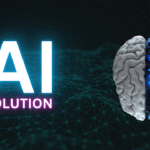The world of Search Engine Optimization (SEO) has always been dynamic, constantly evolving with algorithm updates and changing user behavior. However, the advent of Artificial Intelligence (AI), particularly large language models like ChatGPT, has ushered in a truly transformative era. No longer a futuristic concept, AI is now an indispensable part of a successful SEO strategy, fundamentally altering how we research, create, and optimize content.
ChatGPT’s Seismic Shift on SEO
ChatGPT, with its ability to generate human-like text, summarize information, brainstorm ideas, and even write code, has had a profound impact on SEO in several ways:
- Content Creation and Brainstorming: The most immediate impact is on content generation. ChatGPT can quickly produce outlines, drafts, headlines, meta descriptions, and even full blog posts. While not a replacement for human creativity and expertise, it acts as an incredibly powerful co-writer, significantly speeding up the content creation process. This allows SEOs to tackle a larger content volume or focus on deeper research and refinement.
- Keyword Research & Intent Understanding: ChatGPT excels at understanding natural language and user intent. This aids in identifying long-tail keywords, question-based queries, and semantically related terms that traditional keyword tools might miss. It can help classify keywords by search intent, leading to more targeted and effective content strategies.
- Conversational Search Optimization: Conversational search is gaining prominence as users increasingly interact with AI-driven chatbots and voice assistants. ChatGPT’s natural language capabilities help SEOs craft content that directly answers user questions in a conversational tone, making it more likely to appear in AI Overviews and featured snippets.
- Schema Markup Generation: Implementing structured data (schema markup) helps search engines understand your content better. ChatGPT can assist in generating this complex code, making it easier for websites to qualify for rich results and enhance their visibility.
However, it’s crucial to remember that while ChatGPT is a powerful assistant, it’s not a silver bullet. Its output requires human oversight for accuracy, originality, factual verification, and alignment with E-E-A-T principles (Experience, Expertise, Authoritativeness, and Trustworthiness), which Google prioritizes. Thin, unedited, or keyword-stuffed AI-generated content can actually harm your rankings.
Other AI Tools Dramatically Changing SEO Strategy
Beyond ChatGPT, a suite of AI-powered tools has emerged, each specializing in different facets of SEO:
- Content Optimization Platforms: Tools like Surfer SEO, Clearscope, MarketMuse, and Frase leverage AI to analyze top-ranking content for specific keywords. They provide data-driven recommendations on content length, keyword density, semantic keywords, headings, and overall structure to help optimize existing or new content for better organic performance.
- Comprehensive SEO Suites with AI Integration: Leading platforms like Semrush and Ahrefs have integrated AI capabilities into their extensive toolsets. This includes AI-powered keyword research, content analysis, site auditing, competitive analysis, and personalized SEO recommendations (e.g., Semrush Copilot).
- Technical SEO & Site Auditing: Tools like Screaming Frog (with its AI features), Lumar, and Botify utilize AI to crawl websites, identify technical issues, analyze log files, and even automate fixes for common SEO problems, ensuring optimal crawlability and indexability.
- Generative Engine Optimization (GEO) Tools: As AI Overviews and similar features become more prevalent in search results, specialized tools like Alli AI and AI Search Grader are emerging to help optimize content specifically for these AI-driven responses, focusing on making content useful and easily digestible by AI systems.
- AI Writing Assistants (beyond ChatGPT): While ChatGPT is a general-purpose AI, tools like Jasper AI, Writesonic, and Copy.ai are specifically designed for content generation. They often have features tailored to different content types (blog posts, product descriptions, ad copy) and offer greater control over tone and style.
Tips on How to Strategically Optimize Websites with AI
Embracing AI in your SEO strategy isn’t about replacing human effort but augmenting it. Here’s how to strategically optimize your website in this AI-driven landscape:
- Prioritize User Intent and E-E-A-T: Google’s AI algorithms, like RankBrain and BERT, are increasingly sophisticated at understanding user intent. Focus on creating high-quality, comprehensive, and trustworthy content that genuinely answers user queries. AI can help with research and content generation, but human expertise is vital for ensuring accuracy, originality, and demonstrating experience and authority.
- Embrace Conversational and Long-Tail Keywords: With the rise of voice search and AI chat, optimize for natural language and question-based queries. Use AI tools to identify these long-tail opportunities and incorporate them naturally into your content, perhaps with dedicated FAQ sections.
- Structure Content for AI Consumption: AI models extract concise and structured information. Make your content organized, scannable, and easily digestible. Utilize clear headings (H1-H6), bullet points, summaries, and tables of contents.
- Implement and Optimize Schema Markup: Structured data helps AI better understand your content’s context and enables rich results in SERPs and AI Overviews. Leverage AI tools to generate and validate schema markup for various content types (articles, products, events, FAQs).
- Focus on Technical SEO for AI Accessibility: Ensure your website is technically sound. AI crawlers need to efficiently crawl, understand, and rank your content. This includes optimizing for page speed, mobile-friendliness, a logical site architecture, strong internal linking, and properly configured robots.txt files. Consider creating an
llms.txtfile to guide AI models. - Diversify Content Formats: While text is crucial, AI also processes other content. Incorporate images, videos, infographics, and interactive elements. Ensure your multimedia content is properly optimized with alt text and descriptions.
- Leverage AI for Data Analysis and Insights: Use AI-powered SEO tools to analyze large datasets related to keyword performance, competitor strategies, and technical issues. These insights can help you identify content gaps, predict trends, and make data-driven decisions faster than ever before.
- Combine AI Efficiency with Human Creativity: The most effective SEO strategies in the AI era will seamlessly blend AI’s speed and analytical power with human SEO professionals’ critical thinking, creativity, and nuanced understanding. Use AI for repetitive tasks, brainstorming, and initial drafts, but always apply human refinement, fact-checking, and strategic oversight.
The impact of ChatGPT and other AI tools on SEO is undeniable and ongoing. By understanding their capabilities and limitations and strategically integrating them into your workflow, you can not only adapt to this new landscape but also gain a significant competitive advantage in optimizing your website for the future of search.














